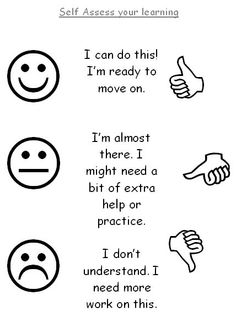I know he has the title, but is he believable?
I'm sure you've seen reports of the numerous large and some high-profile organizations that are altering or outright scrapping traditional, ratings-centric performance management processes to move towards a more nimble, flexible, and frequently centered around coaching and development. More forward-looking as opposed to scoring the past as it were.
While the actual results of these new, 'no more ratings' performance programs have so far been mixed at best, it does seem likely that this trend will continue for a little while longer anyway. And one of the by products of these kinds of programs ironically enough, is the generation of more 'perfomance' data, not less, or at least more than in a traditional annual review process. In these new programs, check-ins, kudos, 'real-time' feedback comments, 1-1 meetings, and even micro bonuses or awards will be happening all year long, will need to be soted, assessed, and made sense of in order for these programs to deliver on their goals - namely improved business and individual performance.
I was thinking about this when reading about how one firm, Bridgewater Associates is taking this idea of high-frequency, real-time, and highly data driven approaches to employee performance and development to an incredibly detailed level.
You should read the entire piece, but here is a snippet from Business Insider piece that sheds a little color on how the firm uses data points on 100+ traits to rate, evaluate, and assess their staff:
Every employee has a company-issued iPad loaded with proprietary apps. One of them, called "Dots," contains a directory of employees and options to weigh in on various elements of each person's work life, categorized in values, abilities, skills, and track record.
There are more than 100 attributes in total, but the collections of attributes are customized to roles in the company, in the sense that an investor's performance would not be measured according to the same traits that would be used to measure a recruiter's performance.
Employees are free to use Dots whenever they'd like, when they want to praise or criticize a colleague for a particular action.
The numerical value of these Dots is considered along with performance reviews, surveys, tests, and ongoing feedback and averaged into public "baseball card" profiles for every employee. The profiles get their name from the list of attributes and corresponding ratings, the same way a baseball card would list something like a player's batting average accompanied by a brief description of their career.
These are then brought into play in meetings where decisions are being made. Using their iPads, colleagues will vote on certain choices, and in the system of believability-weighted decision making, each vote will have a weight depending on the individual's baseball card and the nature of the question.
"A person's believability is constantly relevant," Prince said. "In a meeting, it is relevant to things like how you self-regulate your own engagement in a discussion, how the person running the meeting manages the discussion, and in actual decisions. At all times a person should be assessing their own believability so that they can function well as part of a team."
There's a lot to unpack there, and I am fairly sure that this kind of pervasive, detailed, transparent, and for many, scary, kind of performance/evaluation scheme would not work at most places and for most people. But I think there are (at least) two key features of this system that any organization should think about in terms of their own performance processes.
The first is that the 'Dots' app has the ability to collect, synthesize, and make sense of the many thousands of data points that are generated each year for every employee. So that these interactions, assessments, and bits of feedback are not wasted, or pass off into the ether shortly after they are created. In this way the firm continues to build valuable intelligence about its people and their capability over time.
And secondly, this information is taken into account when decisions are being made. So that if you have built up credibility over time on a particular subject, your opinion or vote on issues related to that subject carries proportionally more weight than someone less experienced or believable on that issue, regardless of position or title. This data-driven approach to 'Who should we believe about this?' helps the firm guard against 'loudest voice in the room wins' trap that many organizations fall prey to.
Really interesting stuff and while maybe being a little too extreme (and disciplined) for most organizations, the Bridgewater approach to performance might give you at least a general idea of where we are heading - a place where every employee action, interaction, and decision is logged, rated, and contributes to their overall profile. And where that profile is taken into account when decisions need to be made.
Good stuff for a Wednesday. Have a great day!

 Steve
Steve



